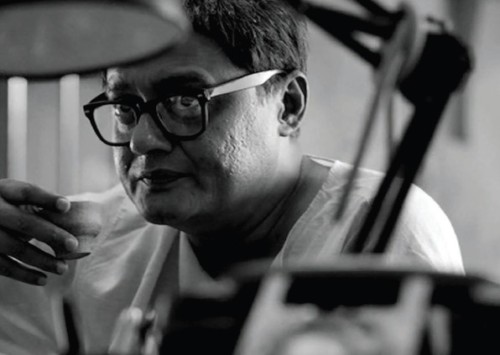Hemanta – an adaptation of Hamlet by Anjan Dutt

In an attempt to rediscover Shakespeare, Dutt made Hemanta
Shakespeare remains a timeless source of inspiration for art lovers worldwide and Hamlet is probably one of the most relevant pieces for artists of every decade who wanted to capture the time and its toxic residues defying the mediocrity that grows profusely in the name of commercial art. A telling example is Hemanta, a just released Bengali adaptation of the Bard’s classic by Anjan Dutt.
National award winning director Anjan Dutt adapted Shakespearean tragedy Hamlet in Bengali and gave it the most quintessential regional touch with the outlook of some of the most global dilemmas of the present times. Lavish jealousy, misrepresented relationships, eccentric affluence, identity crisis of a homosexual or an honest man standing in between a much needed unethical compromise and a dying empire – Hemanta (the Bengali film released on August 12) had them all.
“Lend thou serious hearing, to what I shall unfold”, insisted the ghost of Hamlet’s father as it pronounce its presence to his son and tempt him to avenge his death. Similarly, this film insisted the audience to look into the problems of the regional film industry which once carried the legacy of being at the intellectual zenith.
Hemanta is not an ordinary pot boiler that would narrate the plot of the great English classic and make it an easy dose for the people sitting in the theatres. It tries to disturb the audience, it tries to point out the deep seated anguish of a film aficionado waiting for the fourth bell to ring, it tries to bring out the lunatic lover, son and friend from the protagonist (played by Parambrata Chattopadhyay), thus upsetting the usual comfort zones an Indian or rather a Bengali film going audience would expect to flit around.
Keep the business alive, Claudius!
Staged during a time when the Bengali film industry is going through a much recognisable crisis – a production house named Agradoot is making headlines with their films and making handsome profit. However, the real owner of Agradoot, Hemanta Sen arrives in the city to discover a host of masked relationships trying to conceal a betrayal. The trustees of Agradoot, Hemata’s mother Gayatri Sen (Gertrude) and uncle Kalyan Sen (Claudius) are tying knots to keep the business alive, but there is something else that keeps Hemanta perturbed.
The director sews the characters of Hamlet intrinsically to match the essence of the Shakespearean tragedy as well as keep the originality of the regional fervour alive. One would hardly see such a well crafted mis-e-scene for a British literature in Indian cinema, and Dutt, with all his experience on stage and celluloid, brings out the best from his actors to present a unique film which might well be a textual evidence for the students of Indian cinema in the future.
However, the director could have resolved much stronger cinematic aesthetics to support the fact that Hamlet was mad in place of articulating it on numerous occasions; or in fact he has an oedipal complex about his mother. Like in the original play, it was never mentioned but supported by wit and intelligence of the scheme of things. Benefit of doubt goes to the director as he seems to address the rather slowly maturing Indian audience.
Hamlet – Paris and Kolkata
While most of the French literary artists and philosophers during the Renaissance considered Shakespeare too uncouth and indecorous, the romantics of the nineteenth century embraced his works on stage; that too in the later half. This was also the time when the film industry was slowly being developed, from originally a theatre but also a popular funfair background, in Paris. The French were probably the first of those literary hungry tribes that invited reflections on the traditions and methods of reading and presenting Shakespeare on screen and stage. For instance, one might examine Sarah Bernhardt’s famed stage performance in the role of Hamlet in 1899 and the filming of Bernhardt’s Hamlet-Laertes duel scene in 1900, reputedly the first time any part of Hamlet was recorded for the screen.
India never refrained from interpreting Shakespeare in its own quintessential ways while Bengal remained the hub for appreciating the works of Shakespeare through cinema and theatre. Whether it was Vishal Bharadwaj and his trilogy Maqbool (Macbeth), Omkara (Othello) and Haider (Hamlet) or the likes of Bhrantibilas (1963), a Bengali film inspired by Comedy of errors – India remains a loyal admirer of Sir William Shakespeare through an assortment of interpretations spread across a healthy timeline. Consequently, this bizarre yet very relevant kinship is fueled by Anjan Dutt’s Hemanta to say the least. However, to be or not to be, still remains the question in terms good cinema in India.













